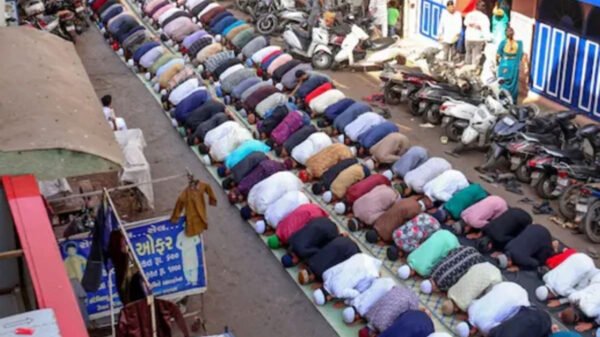Netzah Yehuda Military Unit
The US has chosen not to impose sanctions on Netzah Yehuda, the controversial Israeli military unit known for its severe human rights violations against Palestinians, amid ongoing violence in Gaza.
This decision comes despite a State Department panel’s recommendation for sanctions, based on the 1997 Leahy law, which prohibits American aid to foreign military forces implicated in gross human rights abuses.
The Leahy law mandates that the US should withhold security assistance to any foreign military unit implicated in significant human rights violations.
Despite this, Secretary of State Antony Blinken, a Jewish American with a strong stance on maintaining security assistance to Israel, has opted not to act against Netzah Yehuda.
His decision reflects a broader trend of American policy that often overlooks Israel’s military actions in favor of maintaining strong bilateral relations.
Netzah Yehuda, comprising mainly ultra-Orthodox Jewish members and affiliated with the radical Hilltop Youth settler movement, has been accused of numerous atrocities against Palestinians.
The unit’s record includes grave abuses during operations in Gaza and the West Bank. These actions led to the State Department’s panel recommending sanctions, citing the unit’s involvement in systemic human rights abuses.
Secretary Blinken’s refusal to impose sanctions is seen by many as part of a longstanding US policy that consistently favors Israel, despite evidence of human rights violations.
Analysts suggest that Zionist influence within US political circles plays a significant role in this policy. Pro-Israel organizations and influential figures, including members of Congress from both major parties, exert considerable pressure on US foreign policy decisions.
Critics argue that the US’s unwavering support for Israel, including its recent decision not to sanction Netzah Yehuda, contributes to the ongoing conflict and human rights abuses.
This stance, they argue, emboldens Israeli leaders like Prime Minister Benjamin Netanyahu, who has repeatedly dismissed calls for accountability and continues to endorse aggressive military actions against Palestinians.
Former US officials and analysts have criticized the US State Department for its failure to hold Israeli military units accountable.
Charles Blaha, a former director at the State Department’s Office of Security and Human Rights, noted that the department has never independently confirmed human rights violations by Israeli units. Similarly, Josh Paul, another former State Department official, pointed out that the lack of action over the years has allowed impunity to persist within the Israeli military.
In response to mounting criticism, the State Department has claimed that the Israeli military has taken steps to address human rights issues within Netzah Yehuda.
However, reports suggest that the unit’s leadership has faced little to no real consequences, with former commanders being promoted rather than disciplined.
The Netzah Yehuda unit, part of the Kfir Brigade, has a notorious reputation, with past commanders involved in significant human rights violations.
For example, Mati Shevach, a former commander, was promoted despite his unit’s involvement in the death of Palestinian-American Omar Assad. Similarly, Lt. Col. Nitai Okashi, who led the unit between 2018 and 2020, was rewarded with higher positions despite his unit’s record of abuse.
Critics attribute the lack of effective accountability to deep-seated biases and political considerations.
According to experts, the ultra-Orthodox, radical ideology within Netzah Yehuda fosters a culture of extreme violence towards Palestinians, justified by distorted religious beliefs. This extremist perspective is reflected in the unit’s conduct and the broader policies of the Israeli government.
In summary, the US decision to refrain from sanctioning Netzah Yehuda underscores a troubling pattern of prioritizing diplomatic and political alliances over human rights, contributing to the ongoing crisis in Gaza and further complicating efforts towards justice and accountability in the region.










